We celebrate the growing number of women in our organisation and the broader maritime industry.
They bring diverse skills, perspectives, and knowledge to enrich the work we do to keep our marine environment safe and clean, and to save lives at sea and onshore.
Women at AMSA
AMSA Aviation search and rescue mission coordinator Sheridan Jones describes her career and encourages a fulfilling career in the sector.
"it's mapped a career I never knew of"
AMSA Advisor Safety Liaison, Desley Thompson encourages women to join the Maritime industry. As a proud Waribarra and Tagalaka woman, Desley seeks to be a role model for Aboriginal and Torres Strait Islander women and girls looking for a career in the maritime sector.
"it's a place that's open to having women in the industry"
Captain Jeanine Drummond, Marine Consultant and AMSA board member, hopes her 30year career within the maritime industry can inspire others to seek a fulfilling career in the sector.
"to become Harbour Master for the Port of Newcastle, one of Australia's largest ports, it's been wonderful"
AMSA Future Operations Manager Shontelle Chamtaprieo discusses how the Australian maritime sector can support increasing gender diversity in the industry.
Clare Draper, Maritime Search and Rescue Officer discusses what International Day of Women in Maritime means to her and reflects on what attracted her to work within search and rescue.
Claire has been AMSA’s Tasmanian Liaison officer for almost three and a half years, seeking a change after a regulatory role in state government. Read an interview with Claire.
"the domestic maritime sector is so varied and full of interesting characters"
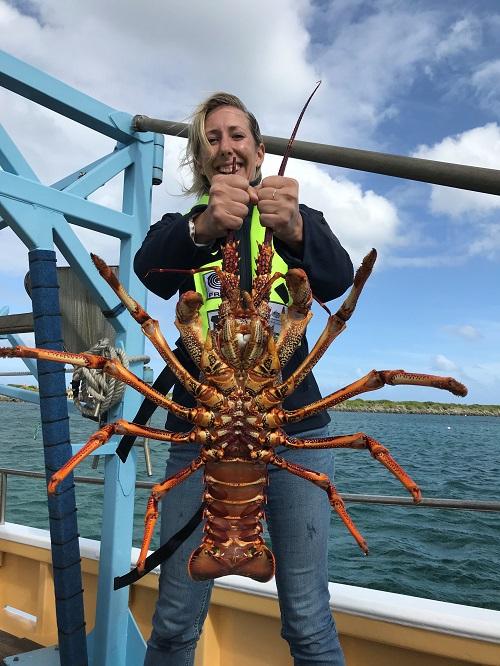
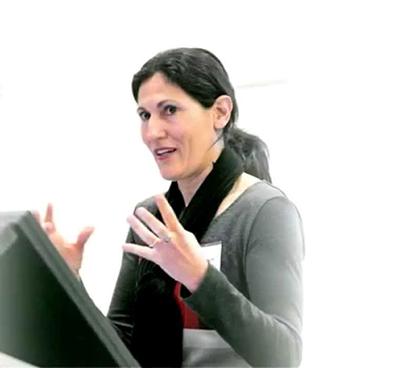
Dr Grech has worked in the maritime industry for 25 years. Following the completion of her mechanical engineering degree, she started working as a commissioning engineer in a shipbuilding company. Read an interview with Dr Grech.
"as a commissioning engineer my role was to make systems work on a ship - and I got hooked"
Women in industry
- A Woman at Sea, Commodore Fiona Freeman
- "two females have reached the rank of admiral and more are following close behind"
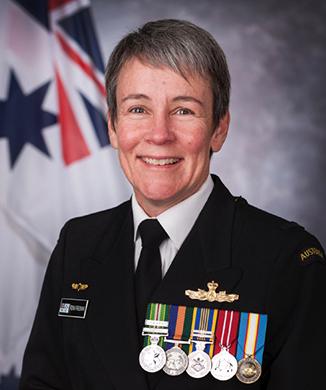
When Commodore Fiona Freeman joined the Royal Australian Navy in 1988, women were on the precipice of change in the maritime industry.
Fiona Freeman is a shining example of how being a woman need not be a barrier to achieving professionally. As a Commodore in the Royal Australian Navy, she is a testament to women being equally capable and successful in leadership roles.
Commodore Fiona Freeman joined the Royal Australian Navy in February 1988. Back then, there was little wiggle room for advancement through the naval ranks. Although women have been part of the Royal Australian since 1941, since 1988 '...women had only been able to fill permanent seagoing positions for the previous two years,' Commodore Freeman says.
However in 2019, Commodore Freeman looks back on her 30 year career and reflects upon both the challenges and evolution of opportunity for women in the Royal Australian Navy.
‘The maritime sector has historically been very much a male dominated industry. However, that is changing.’ Commodore Freeman says.
As a Junior Officer, Fiona spent time at sea in HMA Ships Stalwart, Flinders, Moresby and Paluma and HMNZS Monowai. In 1992 she circumnavigated the globe as part of the international commemoration of Christopher Columbus' journey 500 years earlier. Fiona was also aboard the HMAS Jervis Bay when it deployed to Somalia in 1993 as part of Operation Solace. Her career has travelled the distance of change, however in her formative years she notes—there were very few women whose lead you could follow.
‘There were very few female role models, especially in the seaman branch or in high-ranking positions. Although all women recruited after 1984 were advised that they were eligible for service at sea, substantial numbers of women did not get to sea until the early 1990s,’ Fiona says.
‘After initial training I quickly found myself at sea—in those days though, females could only serve in auxiliary ships or in survey ships—a total of only five ships throughout the fleet. Moreover, female participation across all roles in Navy equated to only 10 percent of the workforce,’ Commodore Freeman says.
Despite the scarcity of women in the Royal Australian Navy, nor tangible pathways for leadership for promising female officers, Commodore Freeman was able to carve out a path for herself. Fortuitously and perhaps simultaneously, the maritime sector was transforming for women as Fiona progressed through her career and she recognises the Navy is now sailing towards leadership opportunities for women in the Royal Australian Navy.
Nowadays, the Navy workforce is comprised of over 22 per cent women. Obviously still a way to achieving equity, however Fiona maintains it is important to acknowledge women have a definitive place in the naval workforce.
‘Women have the opportunity to serve in any area within the service—from aviation and engineering to submarines and intelligence. They make a critical contribution at all levels—two females have reached the rank of admiral and more are following close behind. Females command and serve in all classes of Australian navy ships,’ Fiona says.
And she is justifiably satisfied with her achievements having fulfilled a long and successful career. Commodore Fiona Freeman serves as a pioneering example of possibility for women considering leadership careers in the Royal Australian Navy.
‘I am proud to be part of an organisation that continues to support women, and I only hope within the Maritime community that there are increasing numbers of females who realise that gender is no barrier to achieving whatever they desire.’
And on World Maritime Day 2019, Commodore Fiona Freeman shines a light on the progress women have made and the opportunity now open to women in the Royal Australian Navy.
- Tides of change for women in maritime, Hulita Fa'Anunu
Tongan student inspired to influence positive change for women in the maritime industry internationally.
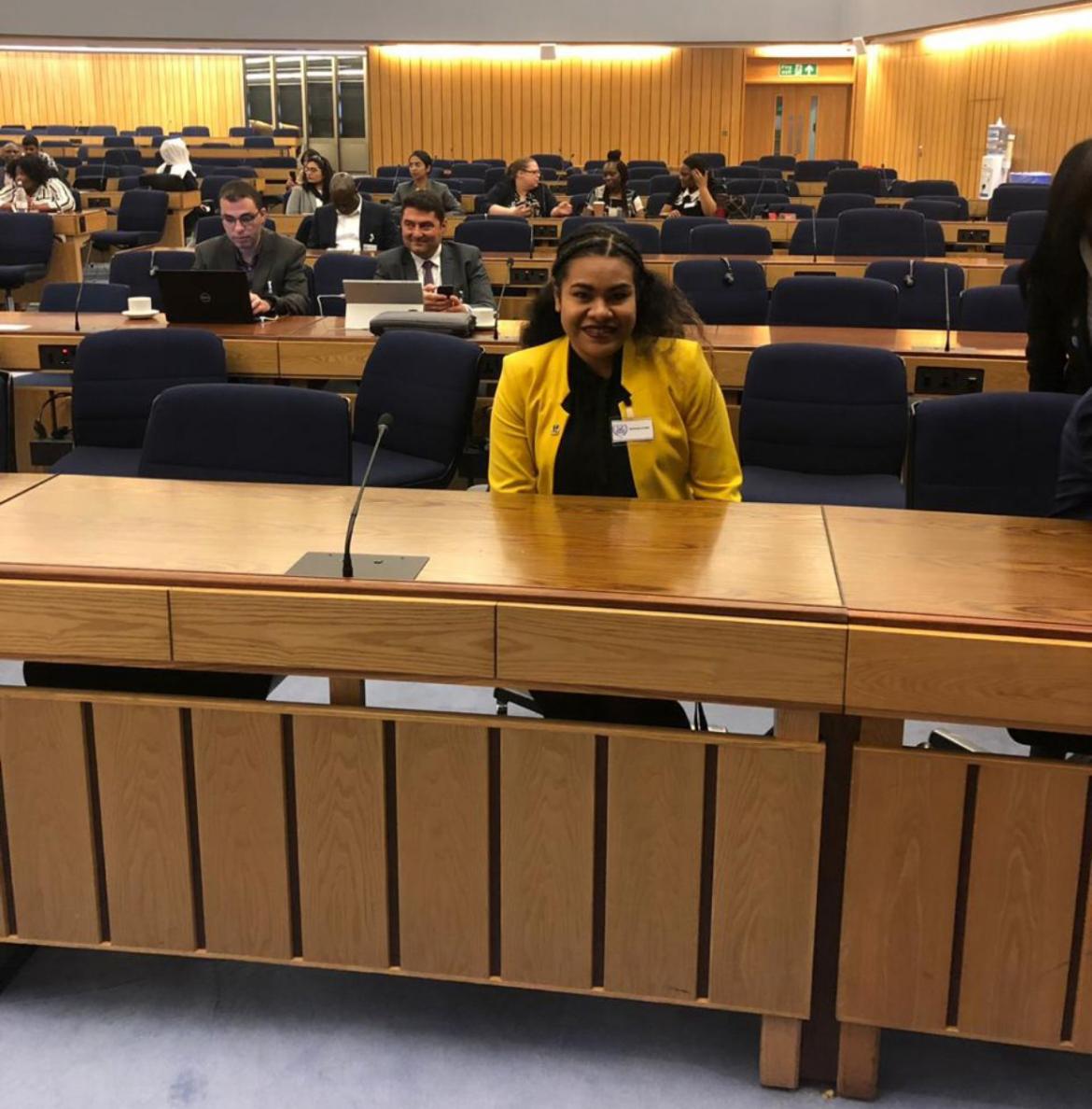
At the age of 26, Hulita Fa’Anunu from Tonga has a bold ambition. She plans to turn the tide for women in the maritime industry globally.
Ms Hulita Lamasialeva Fa’Anunu from Tonga is a vivid example of an empowered woman on a positive path for change. We shared her story as part of the theme for World Maritime Day 2019 - empowering women in the maritime industry, as a soon-to-be graduate of the World Maritime University, Sweden (WMU).
Hulita was born in Neiafu on the island of Vava’u—with a population of 6,000 people, Neiafu is the second largest town in Tonga. She grew up on the coast as the eldest daughter of four children. Hulita explored life with a vast community and extended family, roaming beaches, swimming, fishing and sourcing food from local farms on the island.
'Fishing has been important for the family and community for as long as I can remember, from my great grandfather until now and for the whole community of Tonga,' she says.
One of Hulita's fondest memories was gathering with family in December, often the only time they could be together each year. Family is at the heart of the Tongan community and women and girls have a distinct role and for Hulita, these values impact her work in the maritime industry in Tonga.
'The most important issue is gender equity and the problem in Tonga, is people still think that women aren’t supposed to be in the maritime industry,' she says.
However, studying in Sweden has enabled Hulita to reflect on the cultural norms of Tonga and now she is determined to influence positive change for women in the maritime industry in Tonga and globally.
Funded by Australia as part of the Australian Maritime Safety Authority Fellowships program to study a Master of Science in Maritime Affairs at the WMU, Hulita is the only female fellow and back home, she works as a Fisheries Officer with the Tonga Ministry of Fisheries.
'I feel extremely lucky and humbled to have been selected as one of the recipients of the Australian Maritime Safety Authority Fellowships to study in Sweden.' Hulita says.
As part of her experience in Sweden, Hulita has studied with a number of professors whose expertise in their field of research has exposed her to international standards and progressive research in the maritime industry. Hulita has also enjoyed studying with students from all over the world. A particular highlight was attending the Women’s Forum at WMU, a conference where women met to share personal stories working in the field of maritime.
'This was a remarkable conference and very informative. Women met to talk about their experiences in the field and I realised the importance of working together,' Hulita says.
As a participant of this event, Hulita experienced first-hand the power of personal agency and the importance of collective action to help address the gender gap in the maritime industry.
'At university, I have gained experience inside the classroom, attending the women’s conference and participating on field trips. WMU has a wonderful President—Cleopatra Doumbia-Henry who always reminded me of the importance of empowering women,' Hulita says.
In the future, Hulita has grand plans to apply her studies in maritime science to raise public awareness of the gender gap by empowering young women to embark on careers in the maritime industry in Tonga and internationally. For Hulita, challenges make life meaningful, working hard while navigating positive change for women has inspired her to strive for success in the maritime industry.
- Social scientist, Dr Kirsten Abernethy
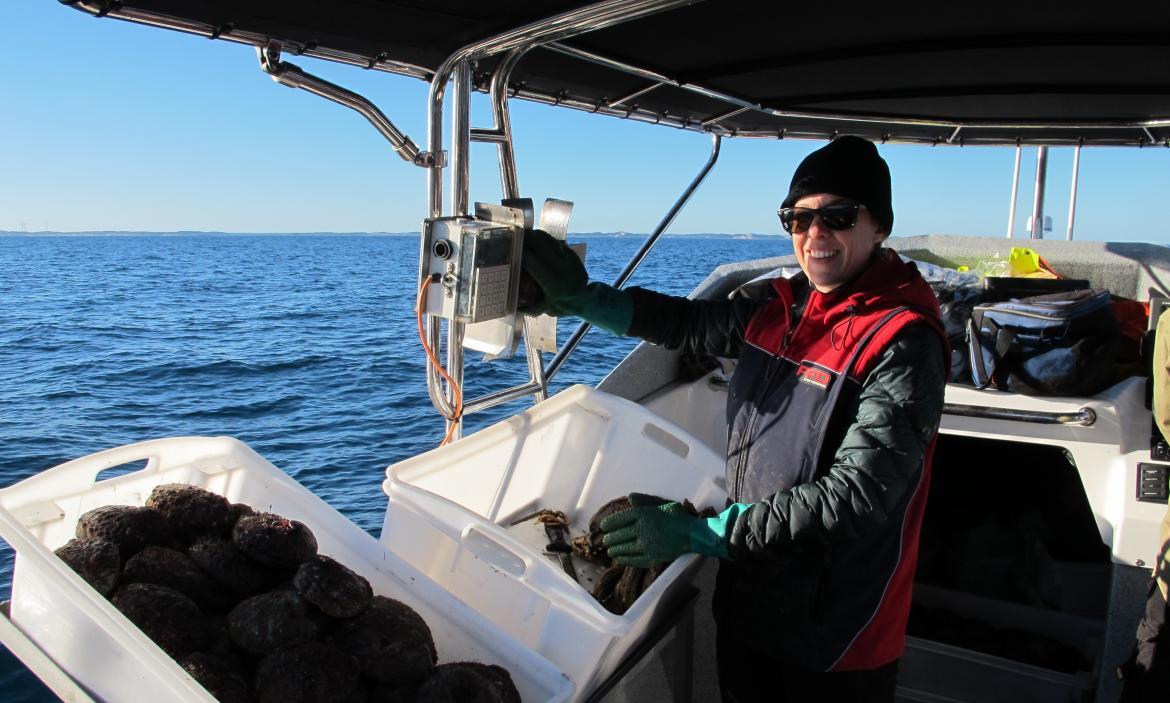
I’m a social scientist and I’ve worked with wild-catch fisheries and fishing communities for more than 10 years as a researcher, teacher and advocate.
My aim has always been to work with the fishing industry and fishing families, and this has taken me around the world from Cornwall in the UK, to the Solomon Islands and Timor Leste.
I live in Port Fairy, south west Victoria, consulting on a variety of projects such as determining the value of fisheries to local communities, helping build greater support for Australian fisheries, and examining the wellbeing of fishing families.
How did you become interested in your career?
There is a romance about fishing—fishers are the last of the hunters and from the moment I stepped onto a professional fishing boat I knew I’d found my calling.
Australian fisheries are ecologically sustainable and managed, and catch is often harvested using methods and knowledge passed down through generations, resulting in fresh and healthy local seafood on our tables.
Our fishing families are the stewards of the sea, they are our eyes on and under the water and are fundamental to the fabric, history and identity of our coastal communities.
What do you enjoy most about your job?
My favourite part is when I get to go fishing. I’ve been deck handing with my partner who is an abalone diver and love it even though it’s exhausting work.
I’ve also had the chance to go to sea on a variety of trips from eight-day stints on trawlers 80 miles offshore, to line fishing in a canoe. The thing I really love is talking to older fishermen and women and listening to their stories.
Any career highlights?
In 2017 I won the AgriFutures Victorian Rural Women’s Award. I felt like it was an award for all the women who work in the fishing industry and a recognition of women’s contributions.
What motivates you each day?
I’ve always been really passionate about working with the fishing industry, there is so much to do, every day is different and it’s never boring.
Who are your female role models?
There are some amazing women working in the fisheries space who are passionate about the industry and work tirelessly to secure its future.
It can be difficult working in a male-dominated industry as women are appointed to only five per cent of senior positions, despite making up half the workforce in the fishing industry.
Any tips for others interested in your career?
Try to build relationships with fishers and their families, get to know what they do and go fishing to understand the industry.
How do you unwind?
I am lucky to live by the sea, so a walk along the beach helps me leave behind a big day.
What’s your favourite lighthouse?
Port Fairy lighthouse of course.
- Marine biologist, Justine Arnold
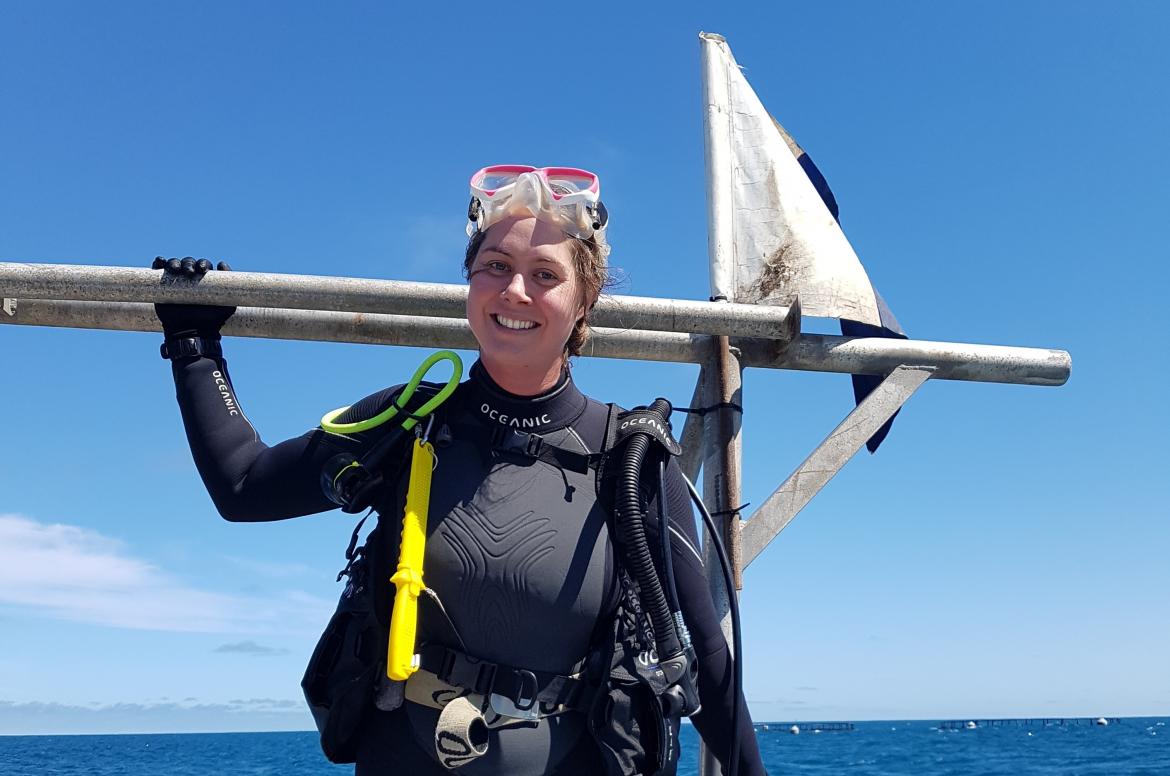
Justine Arnold is a production manager at a commercial yellowtail kingfish aquaculture operation.
I’ve been immersed in the maritime industry my entire life.
My father is a cray fisher at the Abrolhos Islands, Western Australia where my family lived for four months every year and my sisters and I attended school.
We always wanted to go for a ride in the carry boat during school lunch breaks and on the weekends we would go to work with Dad on the cray boat.
The carry boat brought supplies to the island two times a week from the mainland and took the fresh catch back to town.
The remaining months of the year we lived in Geraldton, a mid-west coastal town in WA known for its cray-fishing industry and constant wind!
Your current role and brief background in the maritime industry
My current role is production manager at Indian Ocean Fresh Australia in Geraldton, a commercial yellowtail kingfish aquaculture operation.
I started out as a fish feeder and deckhand, studied for my Bachelor of Marine Science and Environmental Management, completed my marine science honours, then worked my way up to my current role.
I oversee farm operations, including health monitoring of the fish, environmental monitoring and feeding, diving, cage maintenance and fish husbandry.
I gained a Restricted Coxswains qualification in 2008, which was re-issued as a Coxswain Grade 2 when AMSA reissued tickets and then upgraded in 2016 to a Coxswain Grade 1 qualification.
How did you become interested in your career?
I grew up around the ocean, so I always knew I wanted to spend the rest of my life doing something involving the ocean.
I suffer seasickness quite badly so I knew a life solely on the ocean wasn’t for me.
My marine science degree and current job allows me to spend half of my time on the ocean and half of my time on land. I am very lucky!
What do you enjoy most about your job?
I love working on the ocean! No two days are the same. There is so much life teeming under the surface and I also enjoy observing the power of the ocean – it’s unforgiving and relentless at times.
There is a respect that you develop for the ocean when working closely with it. You have no control over what it does, you just have to roll with it!
What motivates you each day?
The flat glassy calm, crystal clear visibility days that get me through particularly on the rough, windy, sloppy, choppy days.
Any tips for others interested in your career?
Believe in yourself!
Take every opportunity provided to you with both hands and hold on for the ride.
What would you say to women interested in joining the maritime industry?
I would love to see more women working on boats!
Do it, challenge yourself, try something different, you can do anything you put your mind to.
How do you unwind?
Nothing outrageous, walking down the beach, playing Frisbee with my dog. Or a nice cold gin and tonic.
Your favourite maritime song?
I’m on a boat by The lonely island
What’s your favourite lighthouse?
Point Moore Lighthouse in Geraldton! My local lighthouse.
- NSW Port Authority, Megan Arnott
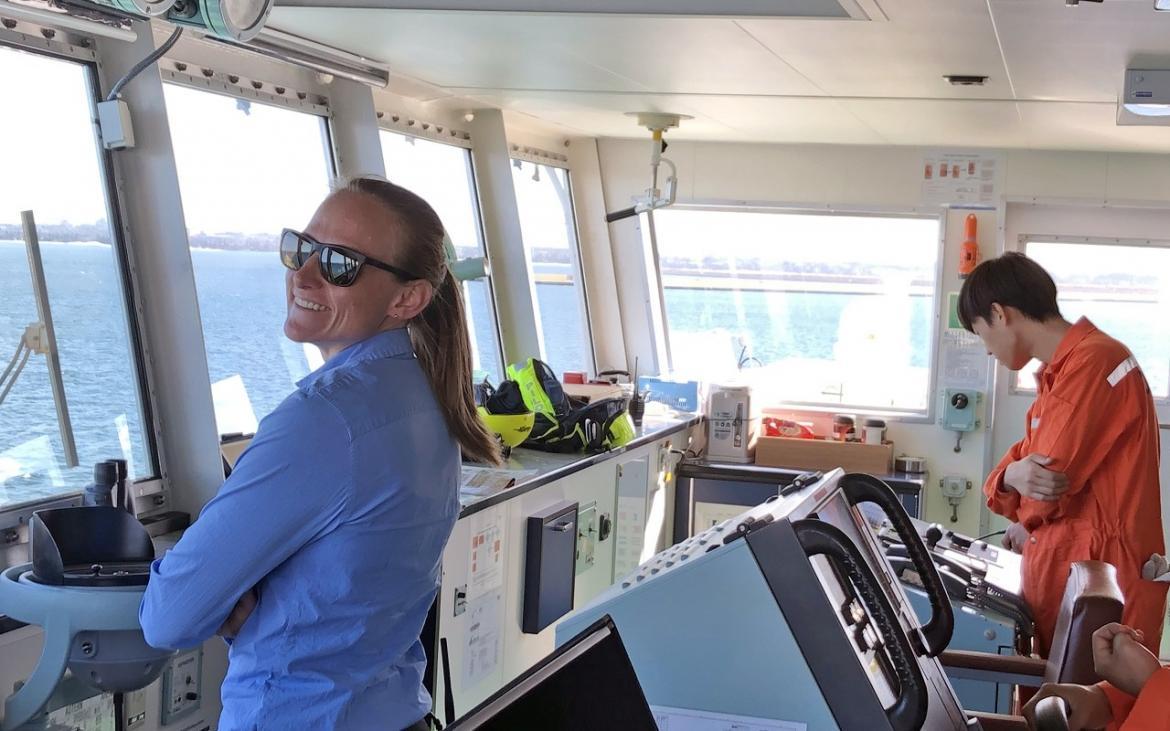
Being raised around the water and sailing, Megan's interest in the shipping industry was sparked by the cruise ships.
I grew up like the majority of the Australian public, unenlightened about the merchant shipping industry. However, being raised around the water and sailing, it sparked an interest in the shipping industry that was obvious to me, the cruise ships.
How did you become interested in your career?
During a university open day I stumbled across the Australian Maritime College (AMC) stall where I asked the question, “What do I need to do to be a captain of a cruise ship?” From there the rest is history, I went to the AMC, completed my pre-sea training, found a cadetship on a little chemical tanker and my interest and achievements in the industry only grew from there.
What do you enjoy most about your job?
I love the everyday challenges that this job and industry brings, no two days are the same and every day is interesting. You wake up each day not quite knowing what the day might bring, it is such a dynamic environment with so many aspects to manage, such as weather, people, traffic and commercial.
What motivates you each day?
I guess I would be lying if I didn’t say it was my personal pride really pushing to strive for my best every day. I don’t think being a minority in the industry drives this, I think even if I was part of a majority group, my personal pride would still be pushing me to be my best. I recently asked a colleague if being a female in the role means the bar is set higher. The response was no, to which I was doubtful, but I have since come to the realisation that this was not a bar being set by others but one which I was setting for myself.
Who are your female role models?
How do you name female role models, there are just too many. Any one, male or female who has ever followed their dream, successfully or not, but had the courage to even begin. I admire all the women in the shipping industry who are paving the way to hopefully see women represent a larger proportion of the recruits and hopefully it will be normal to see women in these roles.
What would you say to women interested in joining the maritime industry?
To anyone looking at going into the industry I would absolutely say, go for it. If you are truly passionate about the industry you will find a truly satisfying, adventurous career, where you will be also rewarded with lifelong friends. Though in the current climate of the Australian shipping industry my words of encouragement would also come with the disclaimer that there can be hard times and it is good to be open to both local and foreign opportunities, including ones that may seem different to the more traditional or direct career path.
How do you unwind?
Though much of my down time is taken up with our 2 year-old-son, any unwinding generally involves time around the water, whether this be boating, kayaking, swimming or a walk by the water. Unless we are out bush you will nearly always find us by the water.
What’s your favourite lighthouse?
So many lighthouses have so many different memories and stories. My favourite close to home would have to be Cape St George lighthouse and its ill-fated and controversial construction.
- Brisbane Water Police, Senior Constable Jodie Rowell
I’m a Senior Constable of the Queensland Police Service, full time operational at Brisbane Water Police. I’ve worked for Surf Life Saving Queensland, and I’ve been an active member of Voluntary Marine Rescue Mackay. I started my current role at Brisbane Water Police in 2016.
How did you become interested in your career?
I’ve always loved the ocean and my Grandfather has many seafarer stories, after he grew up in a working light house, worked for Boating and Fishing Queensland and lived in the Moreton Bay area. His life always sounded interesting to me.
What do you enjoy most about your job?
Learning new skills, engaging with the public and being part of the bigger picture for marine safety and search and rescue.
Any career highlights?
Every day is a new day, they are mostly highlights.
What motivates you each day?
My own personal drive to see as much as possible, learn new things, and help other people.
Who are your female role models?
Lately, Jacinda Ardern
What would you say to women interested in joining the maritime industry?
Don’t think about it, do it, you’ll never regret it
How do you unwind?
Travel, hiking, mountain bike riding, sipping coffee and being in, near or on the water.
What’s your favourite lighthouse?
Cape Otway Lightstation
- Tuna industry research and liaison officer, Claire Webber
Current role and brief background in the maritime industry
Being raised in Port Lincoln definitely aided my decision to study for my Bachelor of Administration (Marine Resources) which is a fisheries management degree.
Then I moved to New Zealand and worked for the Ministry of Fisheries as an observer. I would verify catch independent of the vessel, collect data to underpin the quota management system and undertake marine mammal and bird observations.
I generally worked a roster 50 days on, 50 off on board large deep sea trawlers fishing a number of species including orange roughy, hoki, blue whiting, squid, mackerel and hake. These expeditions took me all over New Zealand from the Chatam Rise to the Challenger Plateau and the Auckland Islands on the way to Antarctica.
Often I was the only female and English speaker on board and it was a real culture shock, but I had a sink or swim moment when I thought ‘the NZ government thinks you can do this, so get on with it’.
During my time off I would often work for Australian Fisheries Management Authority as an observer on demersal or pelagic long-liners.
As the research and liaison officer for Australia Southern Bluefin Tuna Industry Association, I’m heavily involved in hands-on operations in the aquaculture industry.
This includes management of the research program, industry data collection on fish health, water monitoring and environmental conditions, licencing and policy, marketing and industry promotion.
How did you become interested in your career?
The fishing industry in Port Lincoln is male-oriented and it didn’t enter my head that I could work on a boat as it was not work role-modelled by women in the town.
In year 12, my school offered marine biology as a subject and that’s when I started thinking about further study in the maritime sector.
I realised that women in this industry were not unheard of – in fact there should be more of us!
What do you enjoy most about your job?
The diversity of the role – working on a tuna harvest one day, cutting up guts for scientific sampling on another, meeting dignitaries at a luncheon, data entry and reporting – there’s such a variety of work to do.
Any career highlights?
Working on the Russian trawlers was a character forging experience and helped me to develop resilience. I was awarded the National Seafood Young Achiever Award at Seafood Directions in 2015, so that was a great highlight.
What motivates you each day?
An urge to contribute and be an active member of society. I don’t want to be on the sidelines and have people miss out on valued contributions to our society.
Who are your female role models?
Olivia Newton-John who took a lot of risks that paid off and now she gives back through her charities.
New Zealand Prime Minister, Jacinda Ardern, is an amazing woman, she’s given birth during her role and she and her partner are excellent role models for flexible parenting, which is crucial to female participation in the maritime workforce.
What would you say to women interested in joining the maritime industry?
Try pairing education with practical experience, which may mean for example, marine biologists have to actually get down to working as a deckie early in their career.
How do you unwind?
I’m a single-parent with a two-year-old daughter, so to be honest there isn’t much down time, but I love to catch up with mates and enjoy a glass of wine with them.
Your favourite maritime song?
Sailing by Kris Cross
What’s your favourite lighthouse?
Cape Pallister in Wairarapa, on the southern tip of the North Island of New Zealand.
Learn about the AMSA Women in Maritime Engineering Scholarship.
Find out about the Women's International Shipping & Trading Association (WISTA).